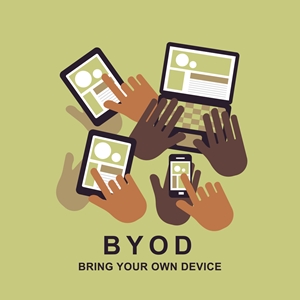Moreso than any other demographic, millennials have gladly embraced the bring-your-own-device trend. Because so many have graduated and are starting their careers, their needs and decisions could have a profound impact on the overall direction of the business environment. Currently, they want to use their smartphones and tablets in the office. In fact, their desire to do so is so high that many are willing to accept lower pay if it means they can use their personal gadgets at work.
The study was conducted as part of Cisco's second annual Connected World Technology Report. It found that a growing number of young professionals want to use their personal devices in the office because it allows them to leverage personal data and connections to help them do their jobs in ways that while non-traditional, may be necessary to produce the best results. For example, according to the results, 45 percent of millennials entering the workforce have such a strong desire to use personal social media accounts as part of their job that they would prefer that advantage over higher pay.
Those who grew up with social media and used applications such as Facebook and Twitter through most of high school and all of college are just now beginning their careers, and for many, using these apps as part of daily workflow seems obvious.
"In this day and age it's hard for me to believe that any company would not allow the use of personal applications such as Twitter in the workplace," Phoebe Scott, a 22-year-old who works in communications, told the online publication The Register. "In my job, it's a necessity so my employer encourages its use. To my knowledge, the company doesn't mind what device I'm using, and I have never been subject to any policies."
She continued to say she assumed that if the office she worked at had a WiFi connection, that meant she had freedom to use her personal device to do her job. If that were not the case, it could be a deal breaker.
"So if I was in a job interview and was told the salary was lower but I would have more BYOD freedom, I would walk away. The use of personal devices shouldn't be a bonus, it should just be the norm," she said.
Organizations should be cognizant of this trend, even if the use of social media in the office doesn't have a direct impact on their operations. What the study really says is that technology has evolved and those who are keeping up with constant changes — primarily the younger generation — expect the places they work to follow suit. Antiquated desktop computers may have lost their value as business tools in 2014, and if employees prefer businesses that understand this idea over those that offer a little extra in salary, this change might be the most practical investment an organization can make.
With the help of a mainframe terminal emulator, businesses can embrace new technologies and provide new workers with the opportunity to access crucial data from a variety of devices and applications.

